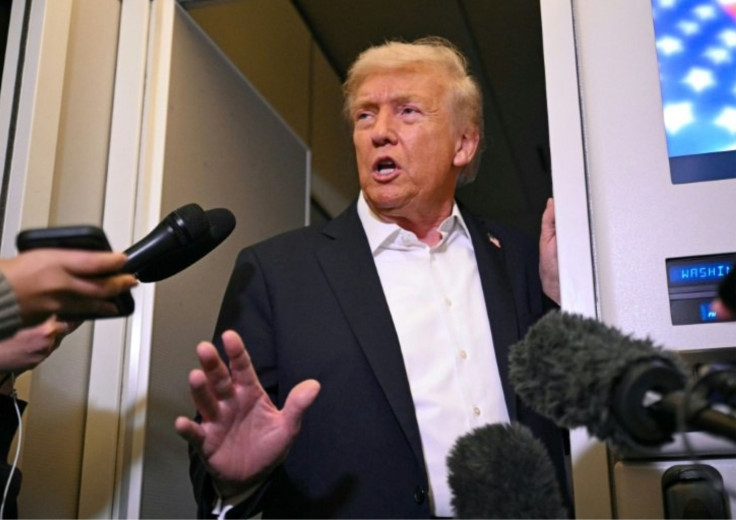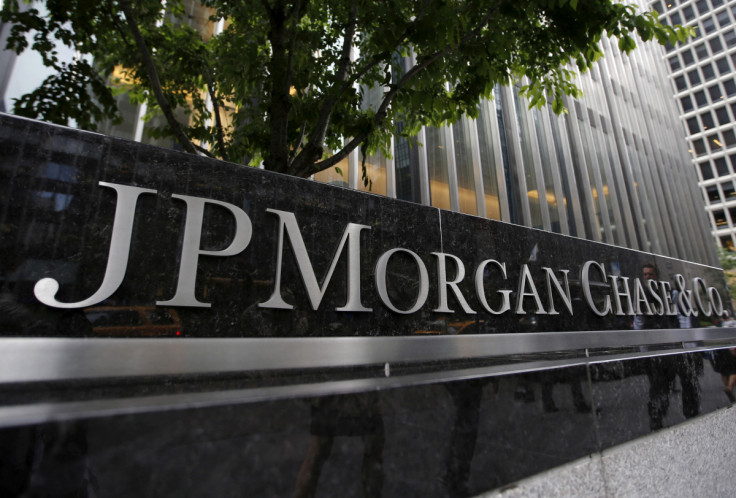Wall Street Goes to War: JPMorgan's $10B Security Push as Beijing Vows Retaliation Over 100% Tariffs

KEY POINTS
- JPMorgan to invest $10B in U.S. defence, energy, and manufacturing sectors.
- The firm will hire bankers and form an external council to guide the 10-year plan.
JPMorgan Chase has announced a sweeping plan to invest $10 billion (£8.2 billion) in American companies considered vital to national security and economic resilience.
The move comes just days after US President Donald Trump reignited a trade war with China by imposing 100% tariffs on select imports.
The announcement marks one of the most significant private-sector responses to Washington's growing focus on economic self-reliance and security.
The bank, which manages more than $4 trillion (£3.3 trillion) in assets, said the investment is part of a broader $1.5 trillion (£1.2 trillion), ten-year initiative aimed at financing industries central to defence, energy and manufacturing.
Dimon: 'This is 100% Commercial'
During a call with reporters, JPMorgan CEO Jamie Dimon emphasised that the plan was not coordinated with the Trump administration despite its political timing.
'This is a JPMorgan initiative,' Dimon said. 'It's 100% commercial. It's about investing in America's future competitiveness and resilience, not politics.'
The new Security and Resiliency Initiative will deploy $10 billion (£8.2 billion) through equity and venture capital investments across four key sectors: supply chains and manufacturing, defence and aerospace, energy independence, and emerging technologies such as artificial intelligence and quantum computing.
'It has become painfully clear that the United States has allowed itself to become too reliant on unreliable sources of critical minerals, products and manufacturing, all of which are essential for our national security,' Dimon said earlier.
The initiative aligns with Trump's efforts to modernise infrastructure, boost domestic production, and reduce dependence on Chinese and other foreign suppliers, particularly in semiconductors, pharmaceuticals and clean energy.
Trade War Clouds the Horizon
The announcement follows escalating tensions between Washington and Beijing. Last week, Trump ended a fragile truce by pledging to sharply increase tariffs after China expanded its export controls on rare earth minerals, which are vital for electric vehicles and electronics.
Trump later struck a softer tone, saying he hoped the dispute would be 'short-lived' and that he remained open to negotiation.
However, Beijing's foreign ministry promised 'firm retaliation' against what it called 'economic coercion disguised as national security'.
The geopolitical backdrop has highlighted how private institutions such as JPMorgan are positioning themselves as key players in what some analysts have dubbed 'the new industrial war effort.'

Banking on National Security
According to JPMorgan, the bank has already facilitated about $1 trillion (£820 billion) in financing for strategic industries and plans to increase that figure by 50%. The new investment arm will target both middle-market firms and major corporations, focusing on 27 sub-sectors ranging from shipbuilding and nuclear energy to nanomaterials and secure communications.
'JPMorgan's move should promote goodwill with both the administration and the business sector,' said Michael Ashley Schulman, partner and chief investment officer at Running Point Capital Advisors. 'Other major US banks already channel vast credit into defence, energy and manufacturing, but JPMorgan has packaged it under a single patriotic banner with a headline number that commands attention.'
Others see the initiative as an unprecedented commitment. Mike Mayo, an analyst at Wells Fargo, said: 'This is different and unique in magnitude and time commitment compared with what I've seen from other banks. It's a newer direction for sustainability initiatives.'
Policy, People and Power
Dimon, who has frequently criticised America's slow regulatory system, urged policymakers to streamline approvals for energy and infrastructure projects. 'America needs more speed and investment,' he said, warning that workforce shortages and bureaucratic delays continue to stifle innovation.
JPMorgan will also create an external advisory council of public and private leaders to guide the initiative and expand its Centre for Geopolitics, a research unit analysing supply chain vulnerabilities and emerging technologies.
Mary Erdoes, CEO of asset and wealth management, and Doug Petno, co-CEO of commercial and investment banking, will co-lead the effort. Both are seen as potential successors to Dimon.
Andrew Castaldo, the bank's co-head of mid-cap mergers and acquisitions, said JPMorgan is already advising Washington on strategic deals. 'We've had no less than 100 calls with clients to talk about the MP Materials transaction and what this means for other industries,' he said, referring to the rare earths miner JPMorgan helped finance.
A Strategic Hedge for Uncertain Times
While some interpret the initiative as a patriotic alignment with US industrial policy, others view it as a pragmatic hedge against geopolitical uncertainty. Either way, JPMorgan is positioning itself as the financial backbone of America's next economic phase, one rooted in security, supply chains and self-sufficiency.
'It's a clever way to align with national priorities while keeping the bank's commercial focus,' said one senior market analyst. 'Call it capitalism with a defence budget.'
© Copyright IBTimes 2025. All rights reserved.





















